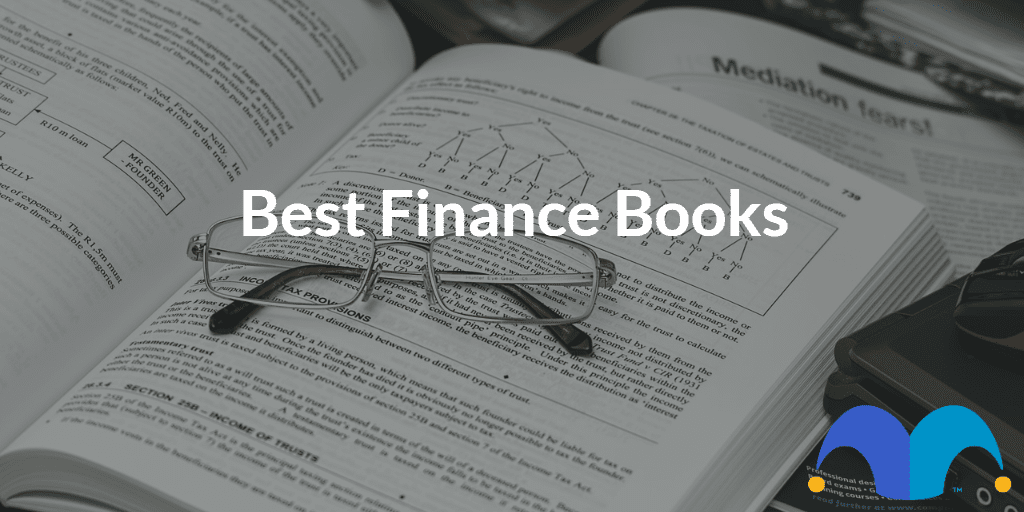There has never been a better time to take control of your finances than right now. So here are some of the best personal finance books out there, helping you learn everything from money basics to super investing skills.
Best for short stories: The Psychology of Money – Morgan Housel
Written by long-time Motley Fool columnist Morgan, this book is great for learning why certain people behave in specific ways when it comes to their personal finances.
The format of the book uses 19 short stories, each outlining different ways people relate to money. This makes it one of the best finance books for dipping in and out of.
Ultimately, the purpose of “The Psychology of Money” is to teach you the benefit of making sound financial decisions, shedding light on the relationship between your behaviour and the flow of money in your life. Housel does this in true Foolish (not foolish!) fashion: without the confusing jargon and boring prose most finance writers use.
Best for a positive money mindset: Rich Dad, Poor Dad – Robert Kiyosaki
After nearly two decades selling off the shelf, this is surely becoming a classic amongst finance books. And with good reason.
A large part of this book’s success is its accessibility. Kiyosaki uses a mixture of anecdotes and practical examples to teach you about how to start approaching your finances.
This style provides a more relatable angle compared to some of the more stuffy literature out there. Kiyosaki uses the examples of two important people, a ‘rich dad’ and a ‘poor dad’, to demonstrate how your finances can dictate the trajectory of your life.
Best for basics: Money: A User’s Guide – Laura Whateley
If you’re just kicking off your personal finance journey, this is one of the best books to get you going. It’s a practical guide on everything money-related and it’s remained a best-seller since publication.
In “Money: A User’s Guide” you’ll find explanations of all the basic financial terms you need to know. There’s also useful advice on topics such as housing, student loans, pensions, and ethical investments.
This may be too basic for those that already know the ropes, but it’s a perfect finance book if you’re looking for a foundation.
Best for passive investing: The Simple Path to Wealth – J.L. Collins
This book started out as a series of letters that Collins wrote for his daughter. He was hoping to pass down valuable information once she was old enough to control her finances.
But the material was so positive and straightforward, he was encouraged to broadcast all the details to lucky people like me and you!
In “The Simple Path to Wealth” you’ll find out ways to build wealth through easy investing methods. Collins will describe how you can use compound interest and just a couple of investments to create financial independence.
Best for women: Money Lessons – Lisa Conway-Hughes
Let’s face it, there are plenty of dusty old books out there written by men for men. With “Money Lessons”, you’ll get a fresh approach to personal finance. Although the target audience is young women, anyone needing help managing their money would benefit from giving this a read.
Based on her own 15 years’ experience as a financial adviser, Conway-Hughes gives actionable advice on how you can improve your money situation.
In this book, you’ll get down-to-earth explanations of subjects such as ‘demolishing debt’ and tips on using technology and apps to your advantage.
Best for millennials: Broke Millennial – Erin Lowry
The title kind of gives it away. But when it comes to books, this is the top personal finance piece out there for broke 20- or 30-somethings who are tired of ‘just getting by’.
In “Broke Millennial”, Lowry provides you with a step-by-step guide on going from ‘flat broke’ to ‘financial badass’. This is all done by covering relatable topics such as your relationship with money and how to still socialise without breaking the bank.
Best for serious investors: The Intelligent Investor – Benjamin Graham
You’ll find this on top of numerous ‘best finance books’ charts, and with good reason. Graham literally wrote the book on value investing, with Warren Buffett being one of his standout students.
This book is more for the finance nerds out there. You’ll find a lot of deep dives into historical data, which may not be appealing to some. However, what’s great about this book is the updated editions. Inside you’ll find extra chapters that explain things with a modern twist.
If you’re someone who sees a future for yourself investing in individual stocks, then this is definitely one of the best finance books out there to cut your teeth.
Final word
Books may not be your cup of tea and that’s okay! If you prefer information that’s a little easier to digest, we’ve got plenty of resources here at The Motley Fool UK Personal Finance that will help you become smarter, happier, and richer!
